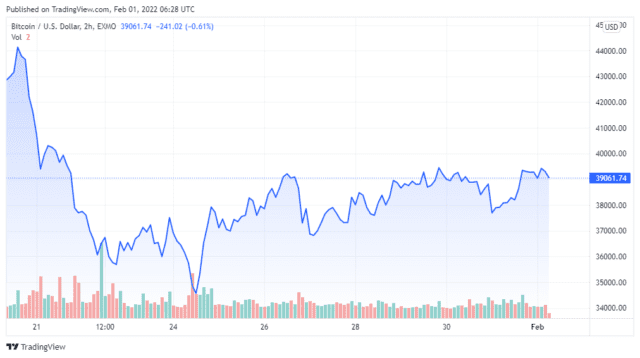SPOILER ALERT: Asset Manager Fidelity thinks “bitcoin should be considered first and separate from all other digital assets that have come after it.” This is huge, considering the Fidelity Digital Assets division’s website opens with “We envision a future where all types of assets are issued natively on blockchains or represented in tokenized format.” That multichain-focused company recognized Bitcoin’s inherent superiority in their latest report.
Related Reading | Google Finance Now Lists Bitcoin First Ahead Of Top Forex Currencies
According to Fidelity, “Bitcoin is best understood as a monetary good” and not as a technology. This is key. They also “believe it is highly unlikely for bitcoin to be replaced by an “improved” digital asset for several reasons.” The rest of the document, more or less, consists of stating and analyzing those reasons.
The Fidelity report is exactly what Paul Krugman needs to understand the difference between Bitcoin and the rest of crypto. It starts with a fairly basic and non-technical overview of how the Bitcoin network works. It explains its “enforceable scarcity,” and how Bitcoin’s “monetary network effects” are unbeatable. It goes as far as claiming that “any subsequent monetary good would be “reinventing the wheel.”
It explains classic Bitcoin-related concepts like “The blockchain trilemma” and its trade-offs. It goes into “The Lindy Effect, also known as Lindy’s Law, is a theory that the longer some non-perishable thing survives, the more likely it is to survive in the future.” And more, much more.
How Did Fidelity Arrive At A Bitcoin-First Stance?
This paragraph summarizes the report’s main thesis:
“Investors should hold two distinctly separate frameworks for considering investment in this digital asset ecosystem. The first framework examines the inclusion of bitcoin as an emerging monetary good, and the second considers the addition of other digital assets that exhibit venture capital-like properties.”
A question arises, why does Fidelity consider Bitcoin a monetary good in the first place? They list four reasons:
-
A monetary good is something that has value attributed to it above and beyond its utility or consumption value. Although Bitcoin’s payment network certainly has utility value, people are also ascribing a monetary premium value to the bitcoin tokens.
-
One of the primary reasons investors attribute value to bitcoin is its scarcity. Its fixed supply is the reason it has the ability to be a store of value.
-
Bitcoin’s scarcity is underpinned by its decentralization and censorship-resistant characteristics.
-
These characteristics are hardcoded into bitcoin and almost certainly will never be changed because the same people that ascribe value to bitcoin and own it have no incentive to do so. In fact, network participants are incentivized to defend these very characteristics of a scarce asset and an immutable ledger.
BTC price chart for 02/01/2022 on Exmo | Source: BTC/USD on TradingView.com
Risks And Possible Scenarios
The report doesn’t go deep into any subject, but it’s comprehensive. Fidelity covers the blocksize war and even does an Ethereum case study. They say ETH’s monetary policy “has changed and is expected to change again.” The report considers two possible scenarios; “A multi-chain world” and “A winner-take-all or most world.” In both of those, Bitcoin is perfectly positioned to dominate.
Related Reading | Lifelong Technician, Fidelity Director Breaks Down The Bitcoin Correction
On the risks side, they consider a few, but they make clear that they plague every digital asset. Fidelity considers “Protocol Bugs,” “Nation-State Attacks,” “Growth of the Digital Asset Ecosystem,” and “Potential Instability of Traditional Macro Conditions.” In the end, Fidelity concludes:
“Bitcoin’s proof of work algorithm, governance structure, and fair launch created the grounds for a decentralized project with minimal trust required. Other tokens have alternative consensus mechanisms, governance structures and token launches, which often reduce their level of decentralization.”
Fidelity ‘s Actual Conclusion
We have to reproduce the report’s last paragraph, the actual conclusion, in its entirety:
“Traditional investors typically apply a technology investing framework to bitcoin, leading to the conclusion bitcoin as a first-mover technology will easily be supplanted by a superior one or have lower returns. However, as we have argued here, bitcoin’s first technological breakthrough was not as a superior payment technology but as a superior form of money. As a monetary good, bitcoin is unique. Therefore, not only do we believe investors should consider bitcoin first in order to understand digital assets, but that bitcoin should be considered first and separate from all other digital assets that have come after it.”
Mic drop.
Featured Image by Kanchanara on Unsplash | Charts by TradingView


